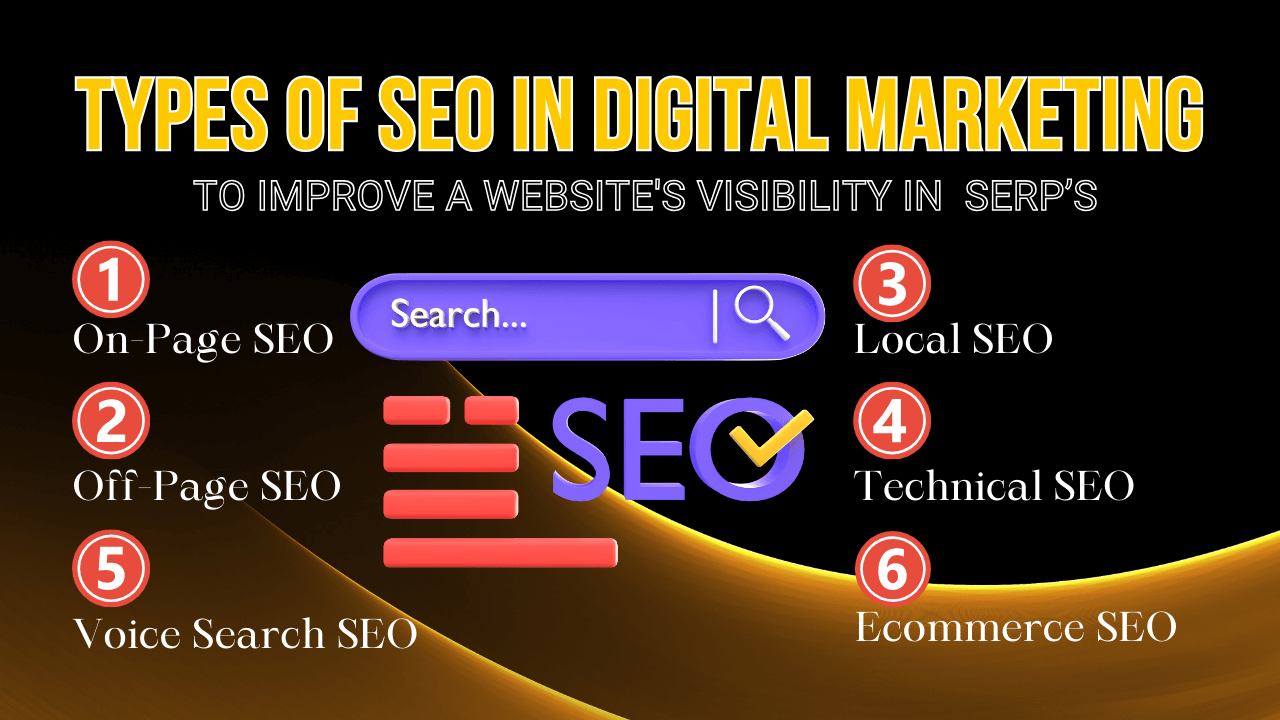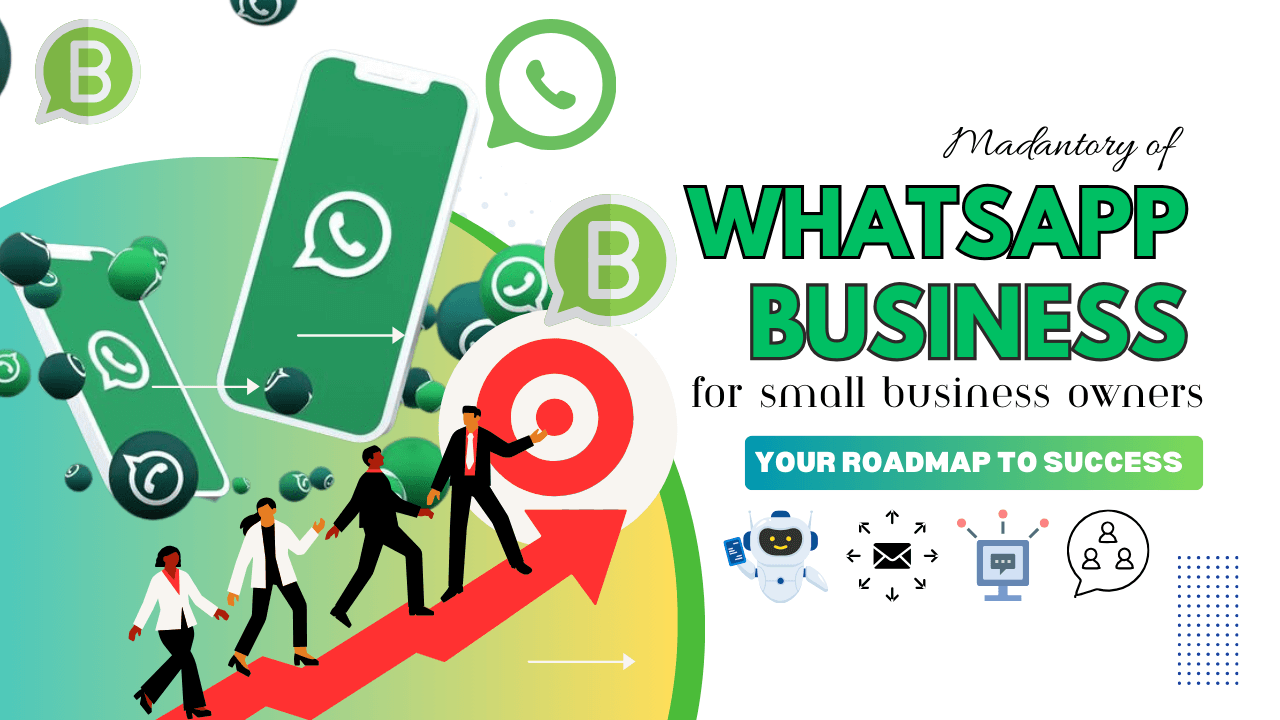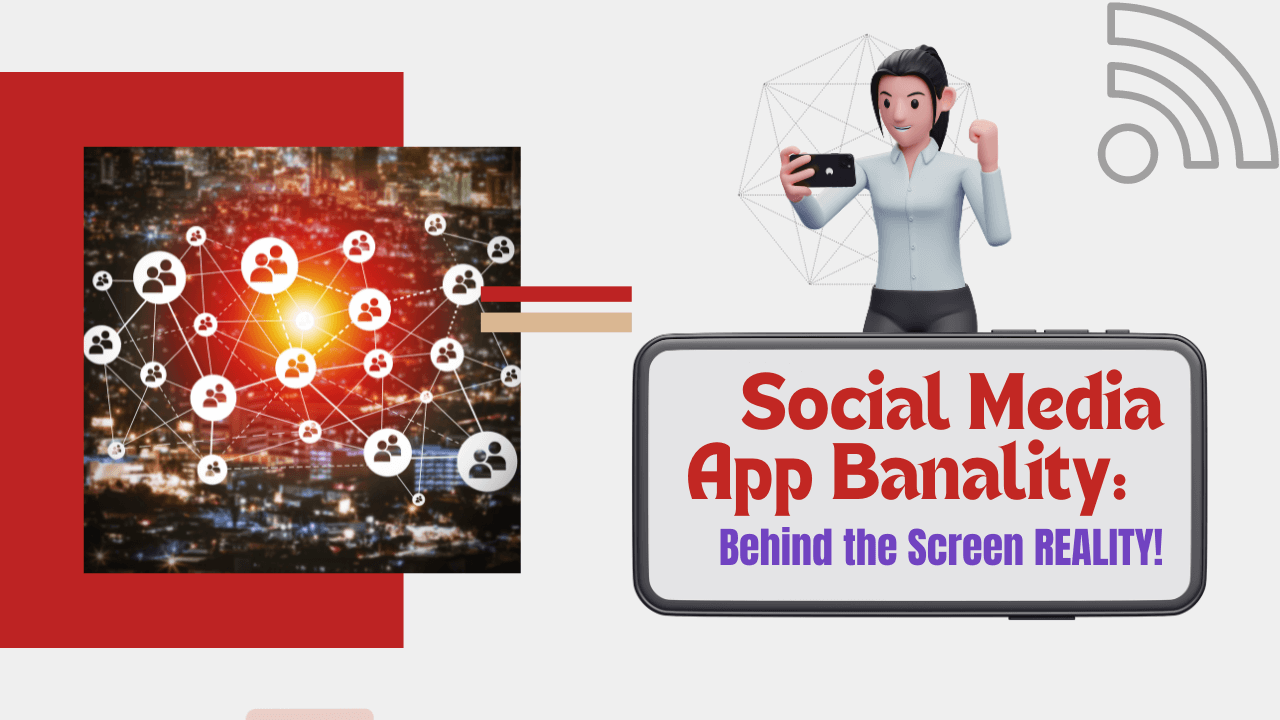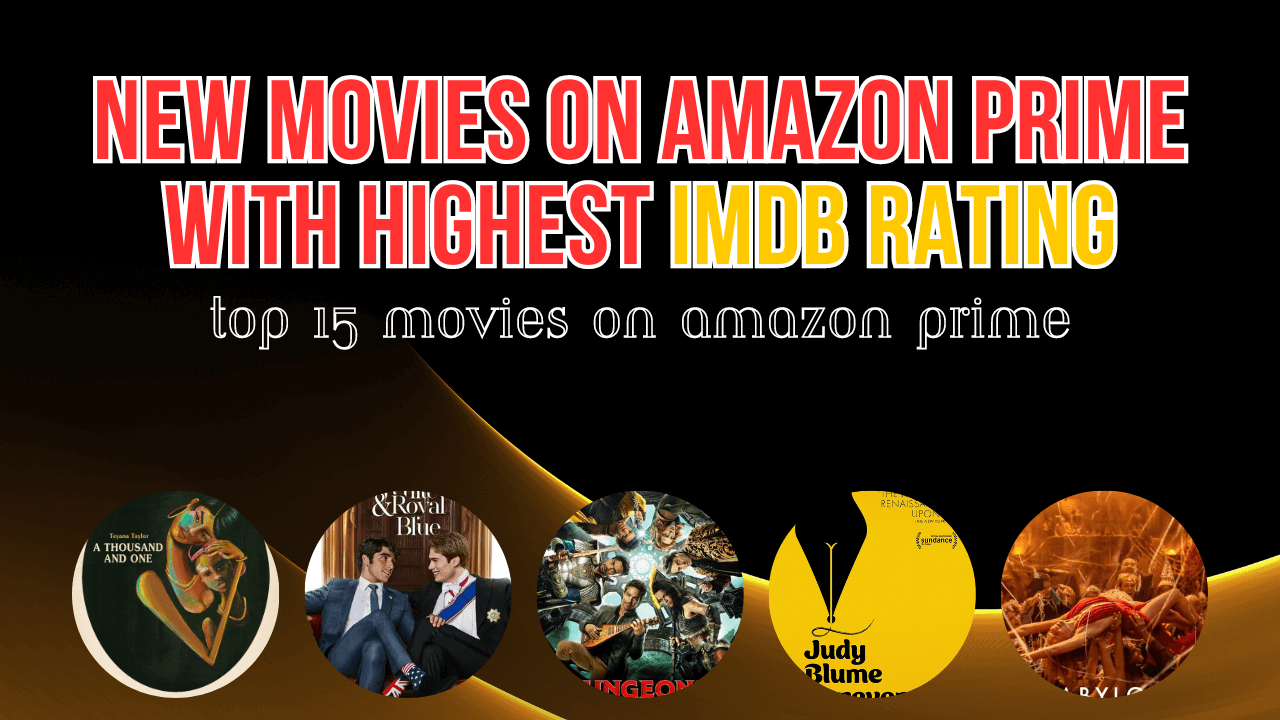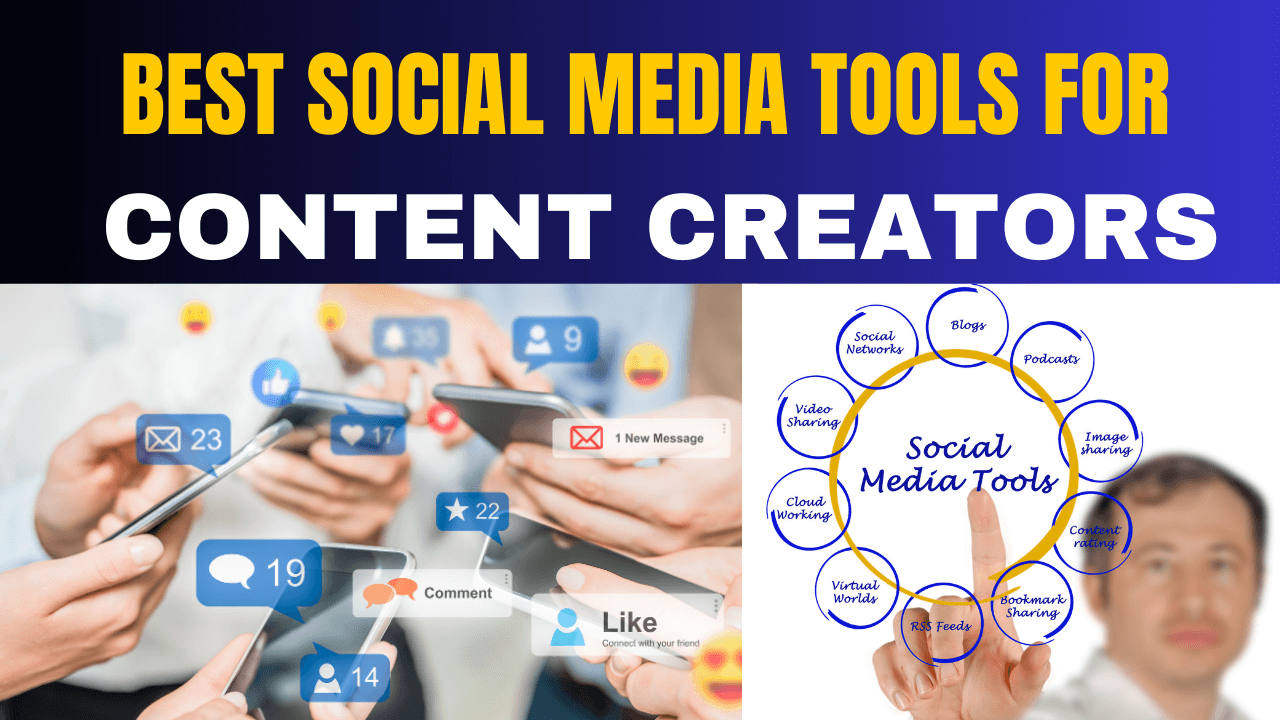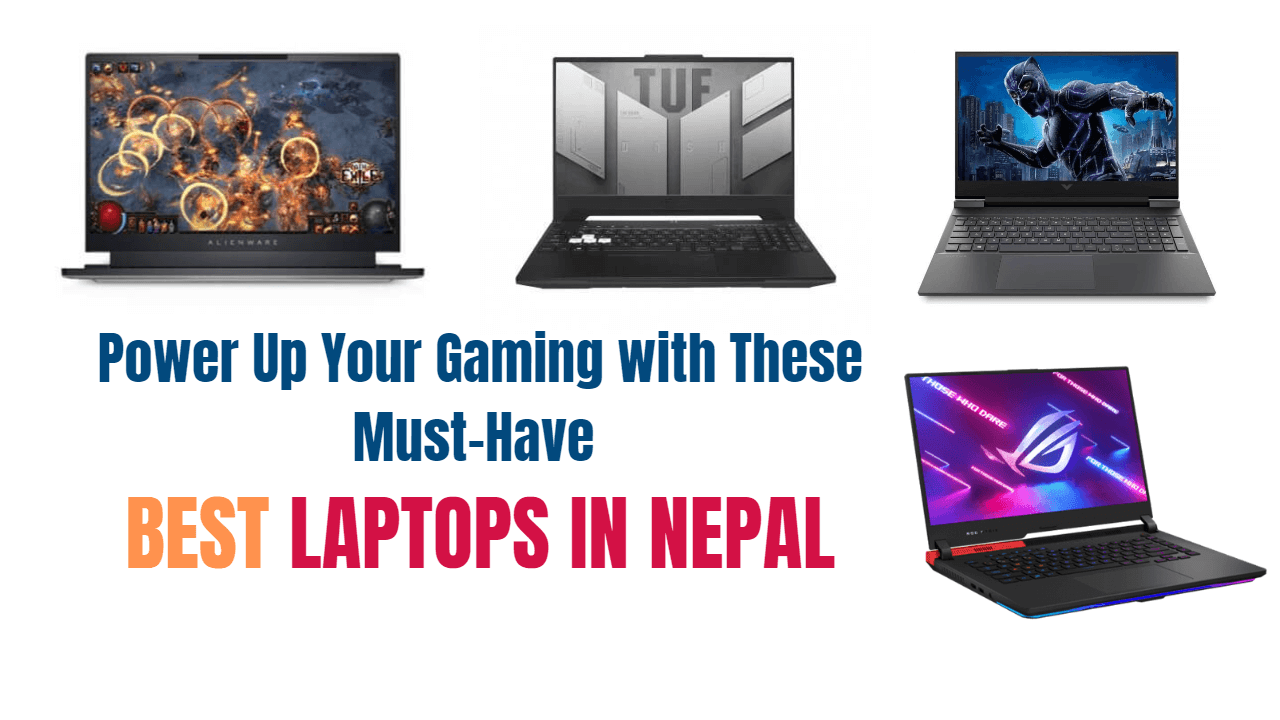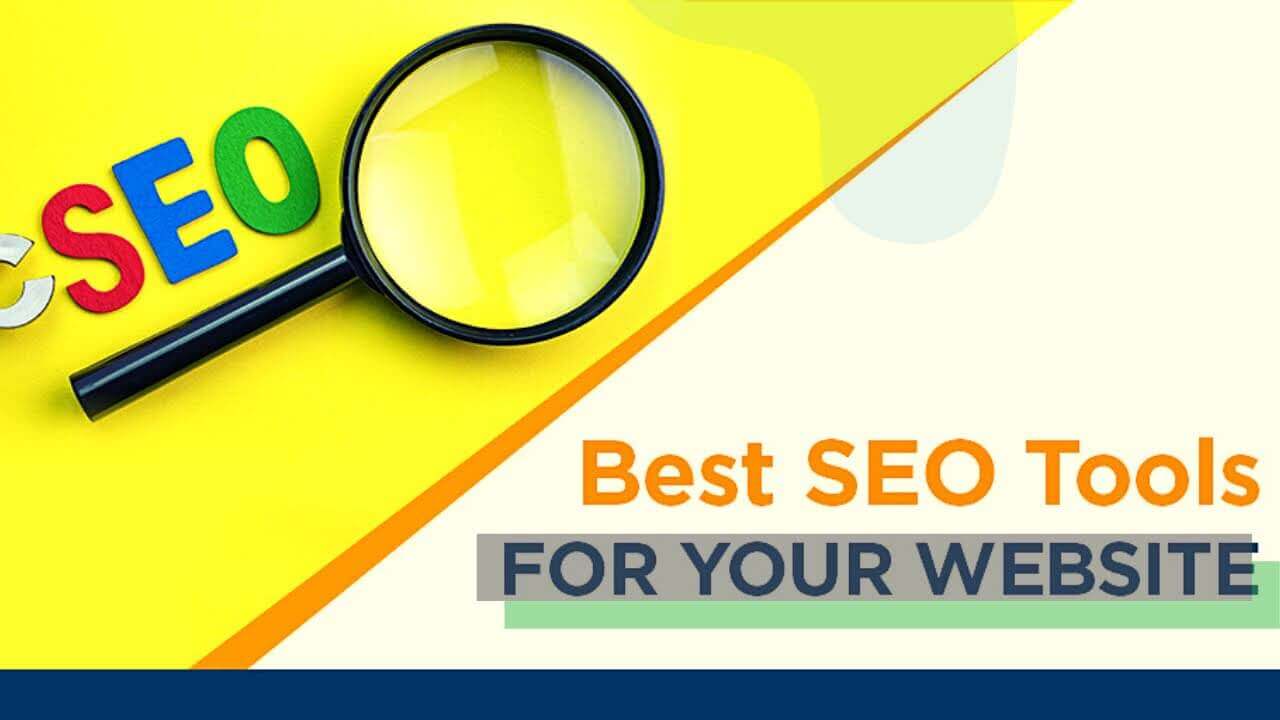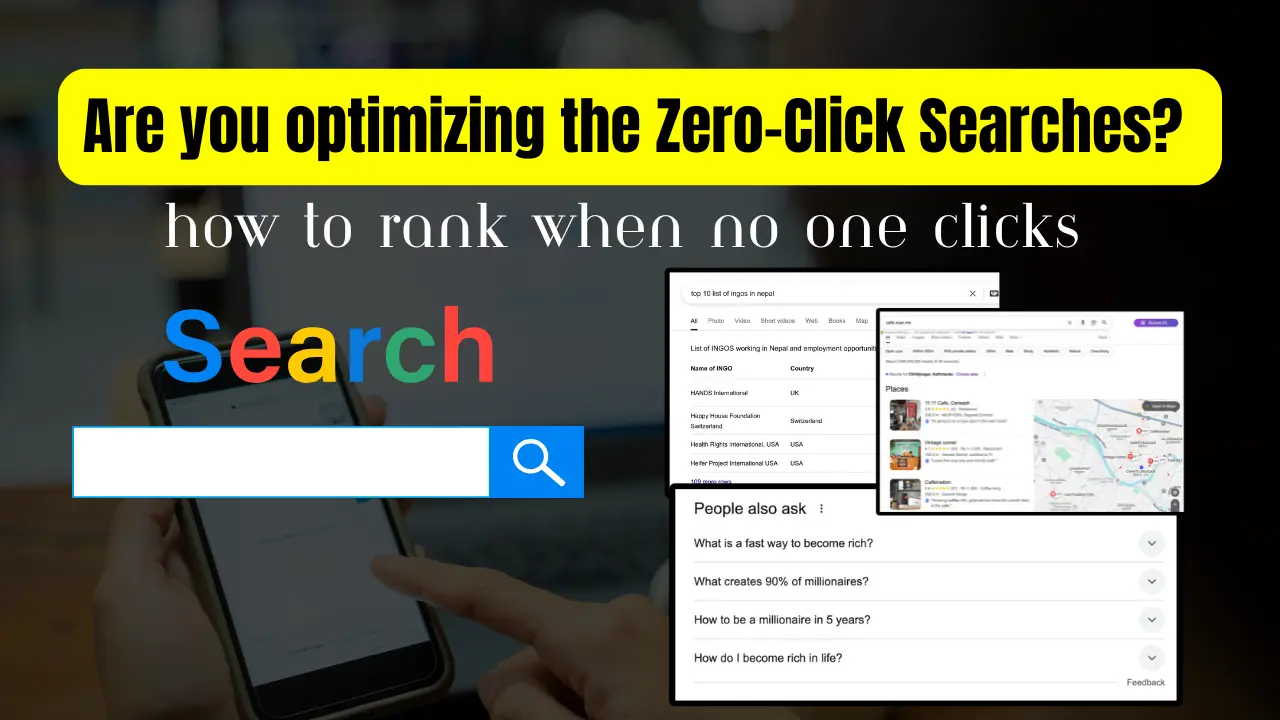Top 10 AI Marketing Apps & Benefits – Power of Artificial Intelligence
2 years agoGoogle Ads Vs Facebook(Fb) Ads: Which is better for ad strategy 2024?
2 years ago -

Which ads are better: Google Ads vs. Facebook(Fb) Ads? Google helps find you a new customer, while Facebook helps new customers find you. Fb ads and Google ads, both ad platforms are pitted against each other. They both stand complementary and provide unique benefits to advertisers.
The most common question marketers often hear is: Where ad platform should I invest my ad budget? Another version of the question is: Google Ads vs FB Ads: Which works better? You must know which factors you are comparing if you compare two terms.
The truth is, there are no better ad platforms when it comes to comparing Google ads vs FB ads. They both do things very differently. Both platforms Google Ads and Facebook Ads were in direct competition with one another, and marketers of all sizes of businesses needed to make it difficult to find out which ad platforms worked better for their needs. A false contradiction may confuse and mislead all those new online advertisements. Honestly, there is no better when it comes to comparing between two because both ad platforms work their thing very differently. Google Ads consists of paid-search advertising, and Facebook Ads is paid-social. That’s a way to evaluate both platforms adequately, you must compare based on the following factors:
Google Ads Vs Facebook Ads based on key factors
| Factors | Google Ads | Facebook Ads |
|---|---|---|
| Average Cost-Per-Click (CPC) | $4.22, Higher CPC, justified by high-quality leads | 0.83$, Lower CPC, budget-friendly, but leads may vary in intent |
| Average Click-through Rate (CTR) | 6.11%, Higher CTR, driven by high-intent searches | 1.51%, Lower CTR, but offers broader visibility |
| Average Conversion Rate | 7.04%, Higher conversion rate due to search intent | 8.25%, Lower conversion rate, better for awareness |
| Consumer Intent | Targets active searchers with high purchase intent | Engages passive browsers, good for brand building |
| Targeting Basis | Keyword and location-based targeting | Best for driving engagement, generating leads, increasing website traffic, or building a social media presence. |
| Ads Types | Google Display Network (GDN) offers Text and shopping ads for search results i.e. Organic results, Call-only, Shopping Ads, Service Ads, and Remarketing Display Ads | Visual and interactive ads for engagement i.e. Image, Video, Slideshow, Carousel, Collection, Instant Experience and Instagram feeds, stories, Messenger, and more. |
| Targeting Audience | Google Display Network (GDN) allows advertisers to reach people as they browse millions of websites, watch YouTube videos, or use apps. | Create custom audiences from website visitors, customer lists and lookalike audiences to reach potential customers similar to your existing ones. |
| Cost & ROI | GDN’s cost per click (CPC) is lower compared to search ads but may require more impressions to convert due to its passive nature. Conversion rates can vary, and effectiveness often depends on audience targeting. | Best for driving engagement, generating leads, increasing website traffic, or building a social media presence. |
| Campaign Objectives | Best for building brand awareness, retargeting, or remarketing, and staying top-of-mind for users. | Best for driving engagement, generating leads, increasing website traffic, or building a social media presence. |
| Conclusion | GDN is focused on targeting user-based browsing behaviour, making it great for brand awareness and remarketing. | Facebook Ads are used for detailed audience targeting and create engaging visual campaigns, making them a powerful tool for building engagement and driving sales. |
Which Product/Services are you Selling?
Google and Facebook are popular advertising platforms. It is said that “Google serves over 40k searches per second and its ad n/w (Google AdWords) takes as much as 33% of global digital ad revenue, whereas Facebook has around 1.18 billion daily active users.
Google Ads and its Features
Google Ads, also known as Google AdWords, is a PPC advertising platform that runs advertisements for business goals. It is often referred to as “Paid Search” & offers four different methods of advertising including search advertising, display ads, Google’s proprietary network, and YouTube video.
Search advertising is the most popular and first ad type, when someone types something on the “search bar”, then Google loads a “search engine results” page with the best answer to your query. The first couple of results will show “Ad” labels that indicate they are sponsored results.
The core of Google Ads is to show their advertiser’s business ads to the users who are searching for products/ services your business offers. This allows advertisers to show their ads by bidding on specific keywords to participate in auctions. When users search any query matches those keywords in the hopes their ads will display alongside search results. Every time a user clicks on that paid ad, the advertiser charges a certain amount of money. The paid search focuses on the use of text-based ads and targeting keywords.
Google AdWords is Huge
Google has nearly 2.3 million searches every second, and AdWords is used by most advertisers more than 4 billion. Not to mention, Google takes almost 33% of the global digital advertisement revenue which is greater than Facebook ads. Due to this massive reach, there is no point in not advertising on the Google ad platform.
That is why most advertisers can’t resist running ad campaigns on Google AdWords.
Google ads allow you to reach every corner of the people around the world with just an ad. As long as your audience is there, Google AdWords will help you to achieve your business goal.
Google AdWords has multiple Ad Format
Google has launched various ad extensions that supercharge otherwise your ad will look dull. All these extensions are free, which helps you to make your text ads compelling, and increase Click-Through- Rate (CTR) and conversions. The breakdown of how every ad extension performed:
- Call extension increased CTR by 4%
- Local extension increased CTR by 9%
- Sitelinks & form extensions increased conversions by 14%
- Image extension doubled the CTR from 13% to 24%
- Review extension boost CTR by 19%
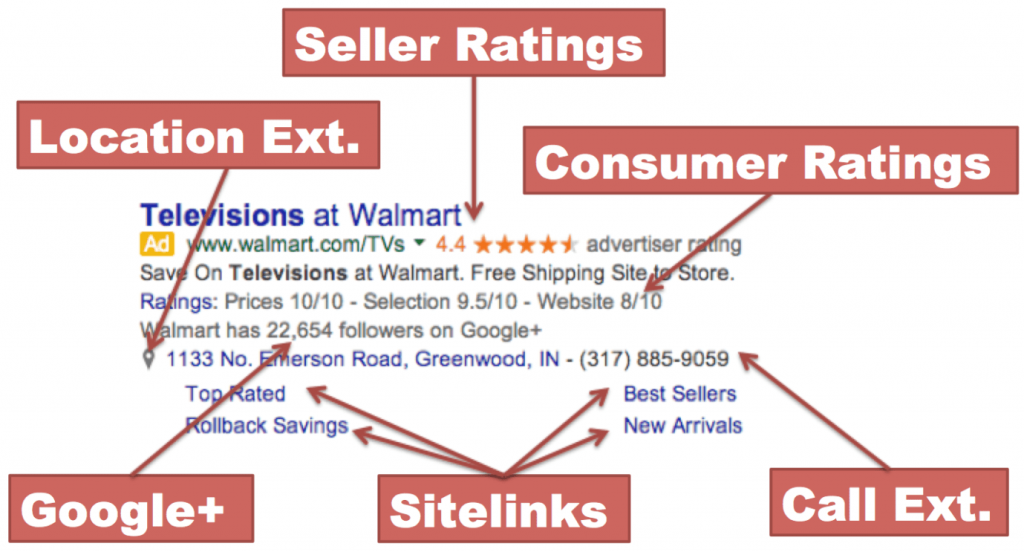
Video Ads
You must already hear how effective videos are at their engagement and conversions. Google takes video advertising to a whole new level with its video ads. Here, you don’t have to promote the video just like on Facebook Ads, but with TrueView. You can promote your products or business within a video with TrueView.
There are two types of TrueView In-Display ads: In-stream ads and Video discovery ads.
- In-stream ads are those ads that play before or during another video. Your video ad will play for five seconds, and users can skip that ad if they wish. These ads capture the attention of your ideal customers in the first five seconds of the ad. You can choose Cost per View (CPV) rather than Cost per Click (CPC) if you want to gain massive visibility for your ads.
- Video discovery ads are those ads that appear on a search page, display network, and other YouTube videos. It can fit into your ad campaigns perfectly and easily target your ads to a focused audience by using specific keywords. According to the initial studies by Google, the click-through rate increased by 11% using TrueView discovery ads compared to in-display format.
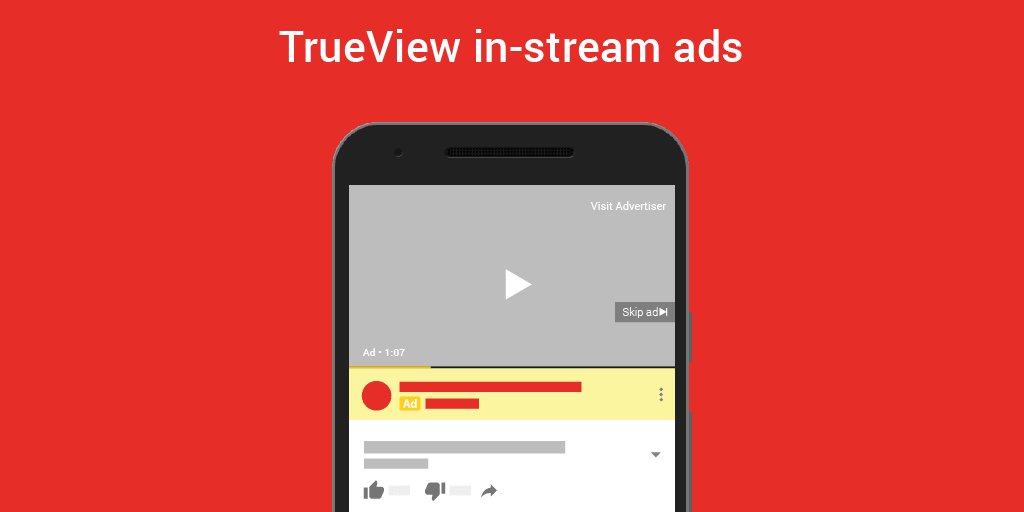
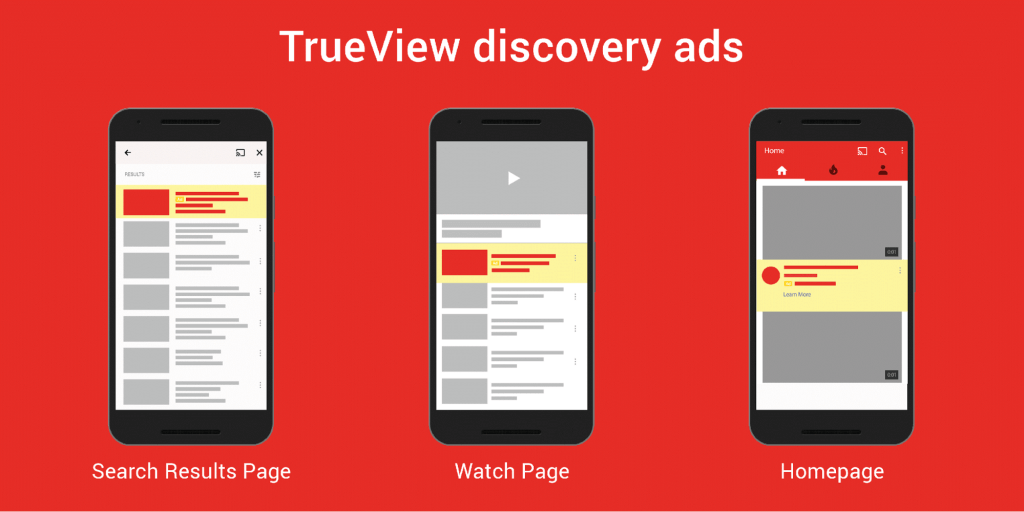
This type of advertising is unique in Google AdWords and the truth is – these video ads work like magic.
Google AdWords has Google Map Ads
Google Map Ads help the advertiser to target local audiences very easily. These ads are a part of the Google search engine and anyone who types a query in Google might end up seeing your ad on Google Maps. This type of ad is offered by Google AdWords only. Google Maps ads are of two types:
- On the map itself
- In the search results
Benefits of Google Map ad: it shows directions, addresses, URLs, business logos, Contact details, and other types of information.
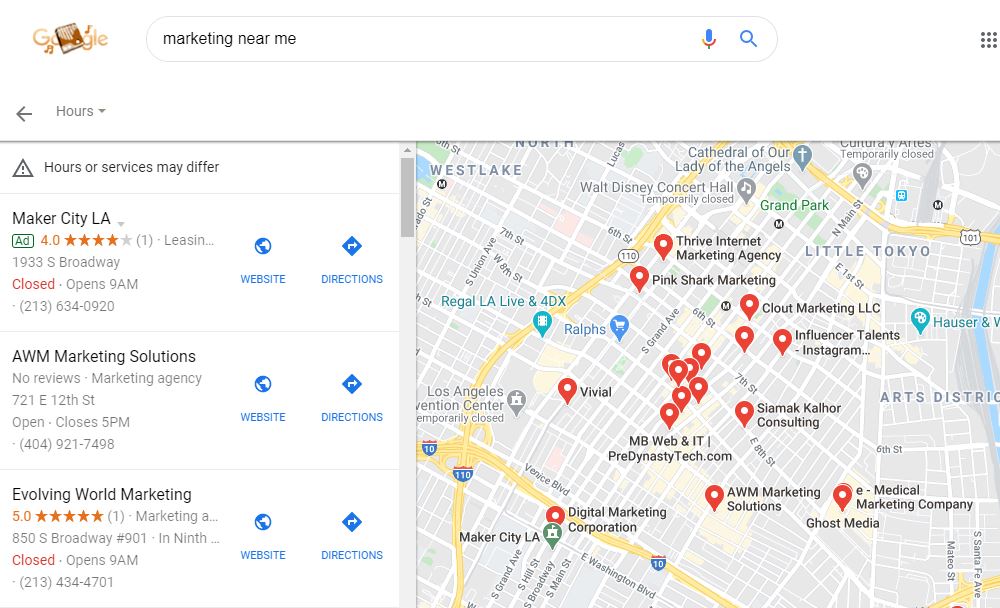
“Facebook ads are known as “Paid social” which is the practice of advertising on social networks.”
Facebook Ads and its Features
Ads on the Facebook platform started in 2004, and it made enormous changes in its ad network. Facebook ads are known as “Paid social”, the practice of advertising on social networks. Due to the highest monthly active users on Facebook, it has become a highly competitive and potential tool for many businesses’ digital advertising strategies.
Facebook collects the data from the users and as a marketer, you can able to use that data to target your audience and place your advertisement in front of those users who have already shown an interest in similar content.
Facebook has several features that make it better than any other ad network. You need to know the 7 keys for effective Facebook advertising, and you can create high-performance campaigns for your business.
Facebook is a Visual ad Network
Facebook ads are visually appealing and ignore those boring text ads like on Google AdWords. These ads are displayed on a Facebook newsfeed, they have to be visual. It is easier to deliver the message to the audience with the help of an image or video than a simple text ad.
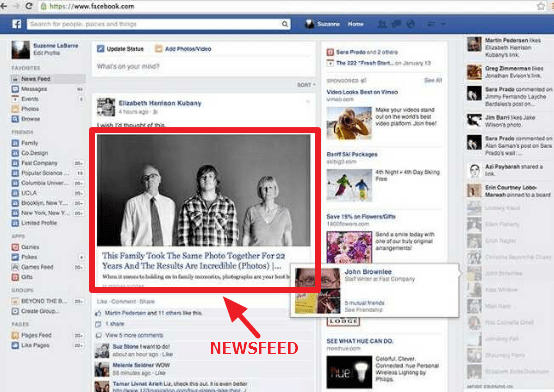
Facebook has specific Targeting
Being the billions of monthly active users, Facebook collected all those users’ data that no other network has ever collected. So, an advertiser can target with extreme ease using it.
For example: You can target males living in a city in Nepal who speak English, and Nepali, have worked for a Restaurant for at least one year, are married, and own a driving license. Your Fb ad will only be shown to those people who meet this criterion.
Such type of specific targeting of an audience isn’t possible in any other ad network, including Google AdWords.
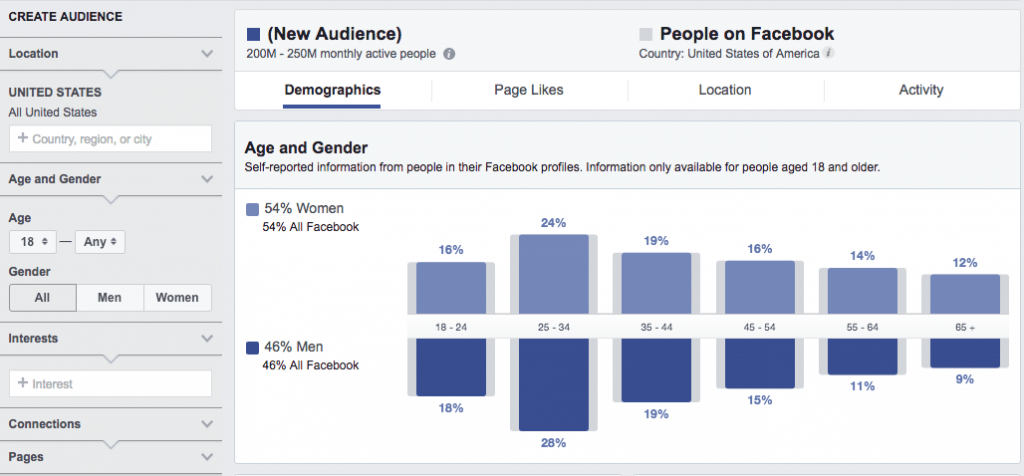
Facebook Lead Ads
Facebook Ads help to generate leads on Facebook, so you can generate leads without sending traffic to your landing page. Facebook doesn’t like sending its traffic to your website, though visitors stay on Facebook and you can collect all the information you want.
It generates a lead quickly at a fair cost.
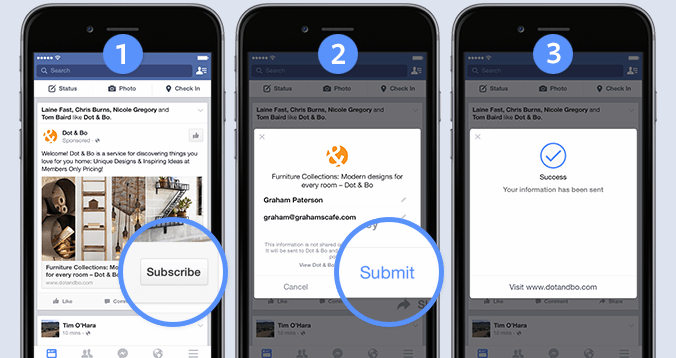
When to Use Google Ads vs Fb Ads
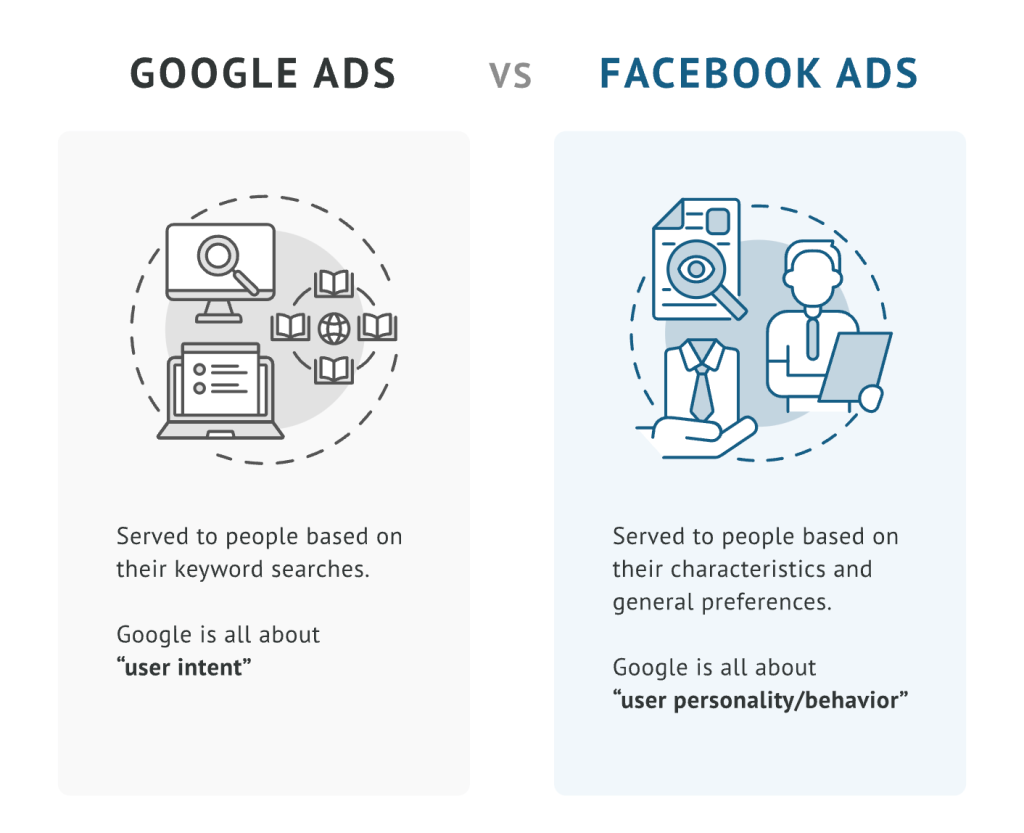
| Facebook ads | Google Ads |
| Building brand or product/service awareness with your target audience | Reach possibilities actively searching and ready to buy |
| Increase exposure of special offers and marketing campaigns to followers and prospects | Connect with leads engaged in product/service research |
| Build interest and recognition within your defined market | Stay top-of-mind through remarketing to previous searchers/visitors |
| Capture hot leads at their highest point of purchase intent |
Strategic Approach of Google Ads vs Fb Ads:
- Use Facebook to building brand awareness and interest in your target market
- Use Google when prospects are actively looking to make a purchase decision
- Leverage the strengths of both platforms for a comprehensive strategy
When to use Facebook ads
Facebook Ads can be valuable to your digital marketing strategy when you want to achieve specific marketing objectives and reach a particular audience. Here are some situations when it’s advantageous to use Facebook Ads:
- Brand Awareness: If your primary goal is to increase brand visibility and make more people aware of your products or services, Facebook Ads can help you reach a wide and diverse audience.
- Audience Engagement: Facebook is a platform where people connect and engage with content. If you want to foster relationships with your audience, encourage discussions, and build a community around your brand, Facebook Ads can be effective.
- Targeted Advertising: Facebook offers robust targeting options, allowing you to reach users based on demographics, interests, behaviours, and even custom audiences. If you have a well-defined target audience, Facebook Ads can help you reach them precisely.
- Product Launches: When introducing a new product or service, Facebook Ads can generate excitement and anticipation by showcasing product features and benefits to a specific audience.
- Content Promotion: To promote this content to a wider audience, driving traffic to your website and increasing engagement.
- Lead Generation: Facebook provides lead generation ad formats that allow users to submit their contact information directly within the platform. This is useful for building your email list and nurturing leads.
- Event Promotion: Whether it’s a physical event, webinar, or online workshop, Facebook Ads can help you reach a targeted audience and drive registrations or ticket sales.
- E-commerce Sales: Used to promote products, showcase discounts, and retarget users who have shown interest in your products.
- App Installations: Used to promote app downloads and installations, reaching users who are likely to be interested in your app’s functionality.
- Remarketing: To retarget users who have visited your website, engaged with your content, or interacted with your brand on Facebook or Instagram.
- Local Businesses: For businesses with a local focus, Facebook Ads can target users in specific geographical areas, helping you reach potential customers in your vicinity.
- Testing Creatives: Facebook’s ad platform allows you to test different ad creatives, copy, and visuals to understand what resonates best with your audience, which can inform your overall marketing strategy.
Remember that the success of your Facebook Ads campaign depends on careful planning, ad targeting, creative content, and ongoing monitoring and optimization. It’s essential to align your ad campaign with your overall business goals and continuously assess its performance to make necessary adjustments.
When to use Google Ads
Google Ads can be a powerful tool for digital advertising when you want to achieve specific goals related to search visibility, driving website traffic, and capturing leads or conversions. Here are some situations when it’s advantageous to use Google Ads:
- Search Visibility: If you want to appear prominently in search engine results pages (SERPs) when users are actively searching for products or services similar to what you offer, Google Ads can help you increase your search visibility.
- High Purchase Intent: Google Ads is ideal for capturing users with high purchase intent because it targets individuals actively looking for information or solutions, making it effective for lead generation and conversions.
- Keyword-Based Targeting: Google Ads allows you to target specific keywords relevant to your business. This is valuable when you want to reach users based on specific search terms related to your products or services.
- Local Advertising: For local businesses, Google Ads can target users in specific geographic areas. It’s an effective way to drive foot traffic to physical stores or generate leads from local customers.
- E-commerce Sales: Google Shopping Ads are excellent for promoting product listings and showcasing images, prices, and descriptions directly in the search results.
- Lead Generation: If your goal is to capture leads, Google Ads can direct users to dedicated landing pages or contact forms, making it easier to collect information and follow up with potential customers.
- Competitive Markets: In highly competitive industries, Google Ads can help you compete for visibility in search results by bidding on relevant keywords.
- Remarketing: Google Ads offers robust remarketing capabilities, allowing you to re-engage users who have previously visited your website or interacted with your brand.
- Seasonal Campaigns: When you have seasonal promotions, sales, or events, Google Ads can help you quickly create and display targeted ads to capture the attention of potential customers during those periods.
- App Installations: Google Ads can be used to promote app downloads and installations through ads displayed on mobile devices.
- Measurement and Analytics: Google Ads provides detailed data on clicks, impressions, conversions, and ROI. It integrates seamlessly with Google Analytics, allowing for comprehensive campaign tracking and analysis.
- Budget Flexibility: You can set daily or monthly budgets with specific limits, giving you control over your ad spend.
- Ad Extensions: Google Ads offers various ad extensions like site links, callouts, and structured snippets, which can enhance your ad’s visibility and appeal.
Google Ads can be a cost-effective way to drive targeted traffic and conversions, but it’s crucial to develop a well-planned strategy, conduct thorough keyword research, create compelling ad copy, and continually optimize your campaigns to achieve the best results.
The main difference between Google Ads vs Fb Ads is: that Google helps to find you a new customer, while Facebook helps new customers find you.
Both ad platforms are pitted against each other but each of them is complementary and provides unique benefits to advertisers. If you focus on one, there are a few things you’ll need to consider.
What is your Objective of ads?
- Building brand awareness
- Driving Engagement
- Acquiring Leads
- Increasing Sales
- Promoting Events
- Facebook(Fb) ads: These ads are especially effective in improving brand awareness, driving engagements, and promoting events. Facebook helps users not come to their platform to buy products by searching any keywords, rather it helps new customers find you.
- Google ads: These ads are a more effective option when it comes to increasing sales and acquiring leads. This is Search Engine Marketing (SEM), Google is great for Sales to generate a platform, user come to Google and type some keyword (e.g.: latest online shoes) that they want to buy and Google show some online eCommerce business ads to their users. Usually, Google helps to find new customers for your business.
So with a practical example of Google ads vs fb ads, if your business is an e-commerce business then always keep in mind Google ads, which are ideal for demand capture meaning reaching users who have high intention to purchase your items.
On the other hand, Facebook ads are ideal for reaching customers who are great for brand and product awareness. The main objective of your business helps you to determine which platform is more suitable to achieve it.
Which product/services are you Selling?
If your business has launched a first-of-its-kind product then almost no audience will be searching for it on a search engine, Google. Sure, you can target relevant keywords, but expecting people to make a purchase based on some semblance of relevance is a tall ask.
That’s where Facebook Ads are more useful than Google ads.
“Google Display Ad Network has taken a worse hit than Facebook ads due to the popularity of AdBlock.”
How Much is your Budget?
You must consider two things while advertising on any of these two platforms: cost per click (CPC) & cost per acquisition (CPA). CPA is a marketing metric calculated by dividing total spending cost by the number of new customers.
Google ads vs FB ads: Facebook almost always has a lower CPC as compared to those Ads.
With Google ads, you need to look at the competitor keyword and its price. If the targeted keyword is high in CPC, it is not the best place to invest your money. For example, let’s say you have a $10 daily budget. You want to rank for “bookstore” in your local area, but your targeted keyword’s cost is $2. That means you would only get a maximum of 5 clicks per day. However, the same budget in Facebook ads, you could potentially reach more people on Facebook Ads for your targeted audiences. It’s all about finding when your money will be spent to reach your business goals and to optimize better performance.
With the help of a tool like HubSpot’s Ads Software, you can measure your campaign ROI, and allow you to adjust optime its performance.
Google ads vs Fb ads
Here’s a table summarizing the key differences between Google Ads and Facebook Ads:
| Factor | Google Ads | Facebook Ads |
|---|---|---|
| Advertising Intent | Search engine advertising, high intent | Social media advertising, brand awareness |
| Targeting Options | Keywords, location, demographics | Demographics, interests, behaviors |
| Ad Formats | Text, display, shopping, video, app | Image, video, carousel, slideshow |
| Cost Structure | Pay-per-click (CPC) | CPC, CPM, CPA, bidding options |
| Ad Performance Tracking | Detailed metrics and Google Analytics | Engagement metrics, reach, Facebook Pixel |
| Audience Engagement | Intent-driven, users actively searching | Social interaction, visually appealing |
| Mobile Advertising | Mobile-specific ad formats | Highly mobile-friendly platform |
| Search Network vs. Display | Google Ads separates search and display campaigns for more control | Facebook Ads blend placements across its network |
| Ad Extensions | Demographics, interests, behaviours | Provides ad extensions, including call-to-action buttons |
| Ad Network Reach | Google has a vast network, reaching billions of users daily | Facebook has over 2.8 billion of monthly active users |
| Ad Placement | On Google search results, Google Display Network, YouTube, and partner websites | On Facebook, Instagram, Audience Network, and Messenger |
The selection between Google Ads vs Facebook Ads should be made based on your advertising objectives, target audience, & available resources. Some businesses find success using both platforms simultaneously to reach different segments of their audience and achieve various marketing goals. Regular monitoring and optimization of ad campaigns are essential for maximizing the effectiveness of either platform.
Google Ads vs Fb Ads Cost, Clicks & Conversions
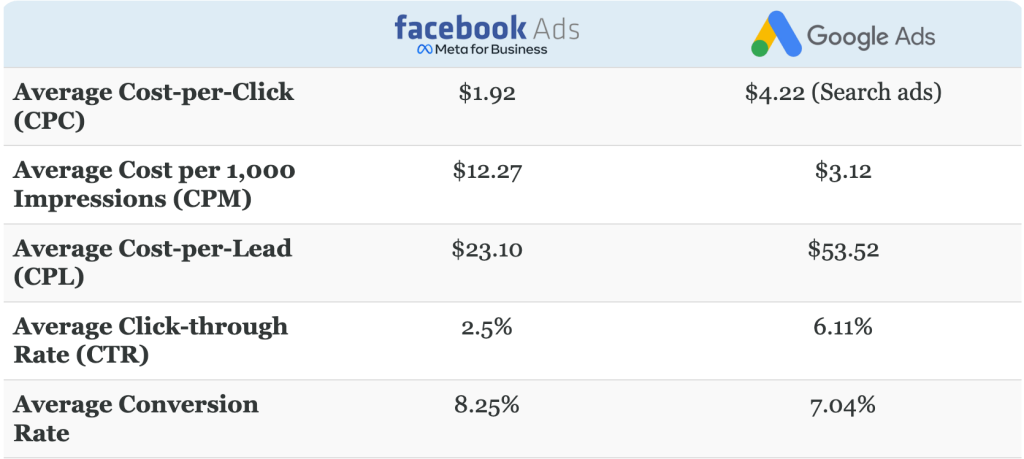
When it comes to affordability, you can’t just look at the sticker price – you need to consider the full picture of how well the ads perform. On average, Google Search ads cost more per click than Facebook ads. Despite much higher click-through rates from those hot leads who exist actively looking to buy. So while you’re paying more upfront, you could get a better overall return from Google due to the higher quality traffic.
Google is well-suited for those who are ready to beat out their wallets. The leads from Facebook might take a bit more nurturing first before they convert into paying customers. It may be worth the extra cost per click for fast and immediate conversions.
But averages only tell you so much. The reality is, that your actual costs will depend a lot on your specific situation and how much competition there is for the clicks you’re going after. A super competitive market on Google could make those costs skyrocket. Same thing on Facebook if you’re in a crowded space.
The bottom line is – don’t just go off averages. Look at your own results and conversions to determine if those higher ad costs on one platform or the other are worth it based on the returns you’re actually generating. There’s no one-size-fits-all solution. You’ve gotta tailor your strategy and spending based on what’s working for your particular business.
Picking the Right PPC Platform: Google Ads vs Facebook Ads
As a business owner, you want to make sure you’re spending your advertising dollars in the right place. The multiple PPC platforms are in the market, and which one is the perfect fit can feel like a shot in the dark. Testing every single option is just going to exhaust your budget and energy.
That’s why we did the legwork for you, putting Google Ads and Facebook Ads through their paces based on 6 key criteria that really matter:
- Cost-Effectiveness – Let’s face it, you need your ad spend to translate into real revenue. We looked at whether these platforms give you a bang for your marketing buck.
- Audience Intent – There’s a big difference between reaching window shoppers versus those ready to whip out their wallets. We explored their strengths for each buyer’s mindset.
- Targeting Capabilities – The more laser-focused you can get with your targeting, the better your chances of converting. We scoped out the audience targeting options.
- Creative Flexibility – Some businesses need video ads, and some want gameplay – we checked what types of ad formats and creative choices you have.
- Placement Possibilities – Visibility is everything, so we investigated the various places your ads could get premium exposure.
- User-Friendliness – Let’s be real, some of these platforms are absurdly complex. We assessed which ones are intuitive for the everyday marketer.
FAQs of Google Ads vs Fb Ads
Which is better: Google Ads vs Facebook Ads?
The choice between Google Ads and Facebook Ads depends on your marketing goals. Google Ads are typically better for capturing high-intent users who are actively searching for specific products or services. This makes them ideal for driving immediate sales. Facebook Ads, on the other hand, excel in brand awareness and audience engagement. They are great for reaching a broader audience and nurturing leads over time. Consider your target audience and campaign objectives when deciding between the two.
Are Google Ads effective?
Yes, Google Ads are highly effective, especially for businesses looking to target users with strong purchase intent. The platform allows you to reach people who are actively searching for what you offer, leading to higher click-through rates and conversion rates. The effectiveness of Google Ads also depends on the quality of your ad copy, targeting, and budget management.
Are Google Ads worth it?
Google Ads can be worth the investment if you have clear objectives and a well-defined target audience. The average cost per click (CPC) might be higher than other ad platforms. But the potential for generating quality leads and conversions often justifies the expense. However, it’s essential to optimize your campaigns continuously to ensure you’re getting the best return on investment (ROI).
Latest articles:
- How to Optimize for Zero-Click Searches? Is It Bad for SEO?
- Metaverse Marketing: Social Media Marketing in the Metaverse
- What is On Page Optimization? Keyword, URL, Meta Tags, ALT Tags & MORE!
- AI vs Human Copywriting: 10 Reasons Why Human Copy is Better Than AI
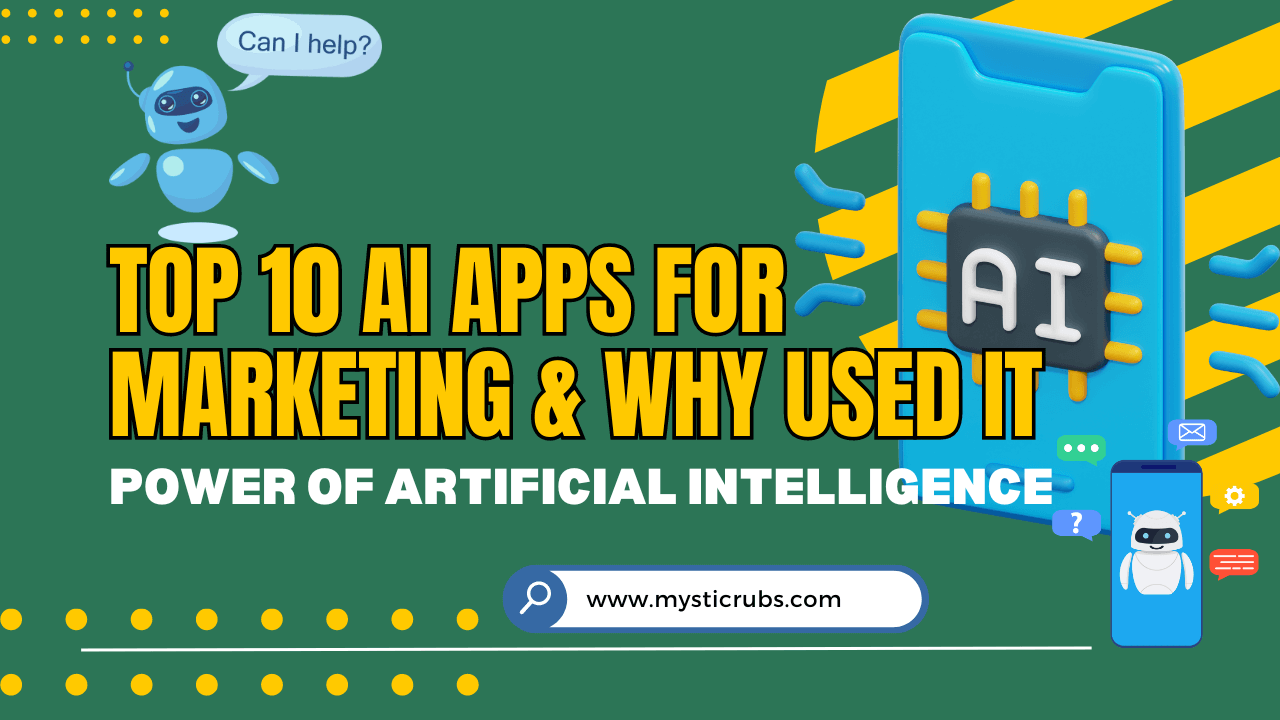
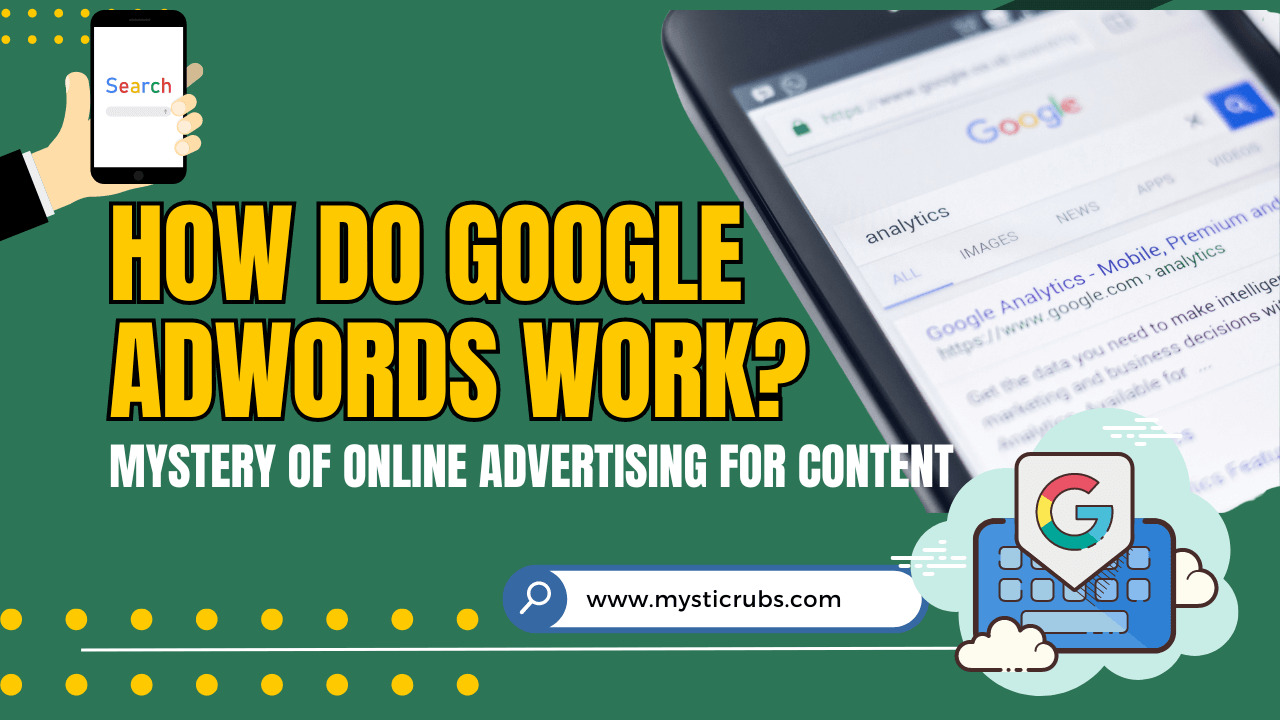
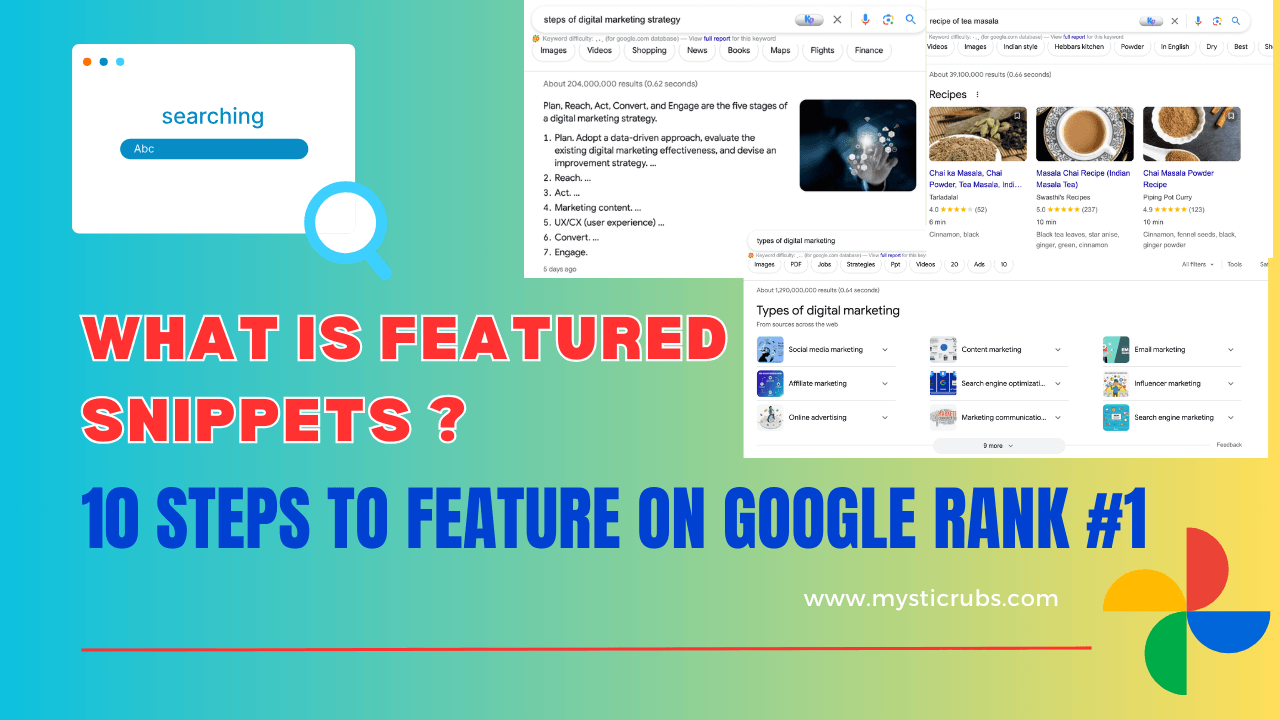
![[2025 Updated] Top 10 Digital Marketing Agencies in Nepal Ranked!](https://mysticrubs.com/wp-content/uploads/2022/05/top-10-digital-marketing-company-in-nepal.png)
